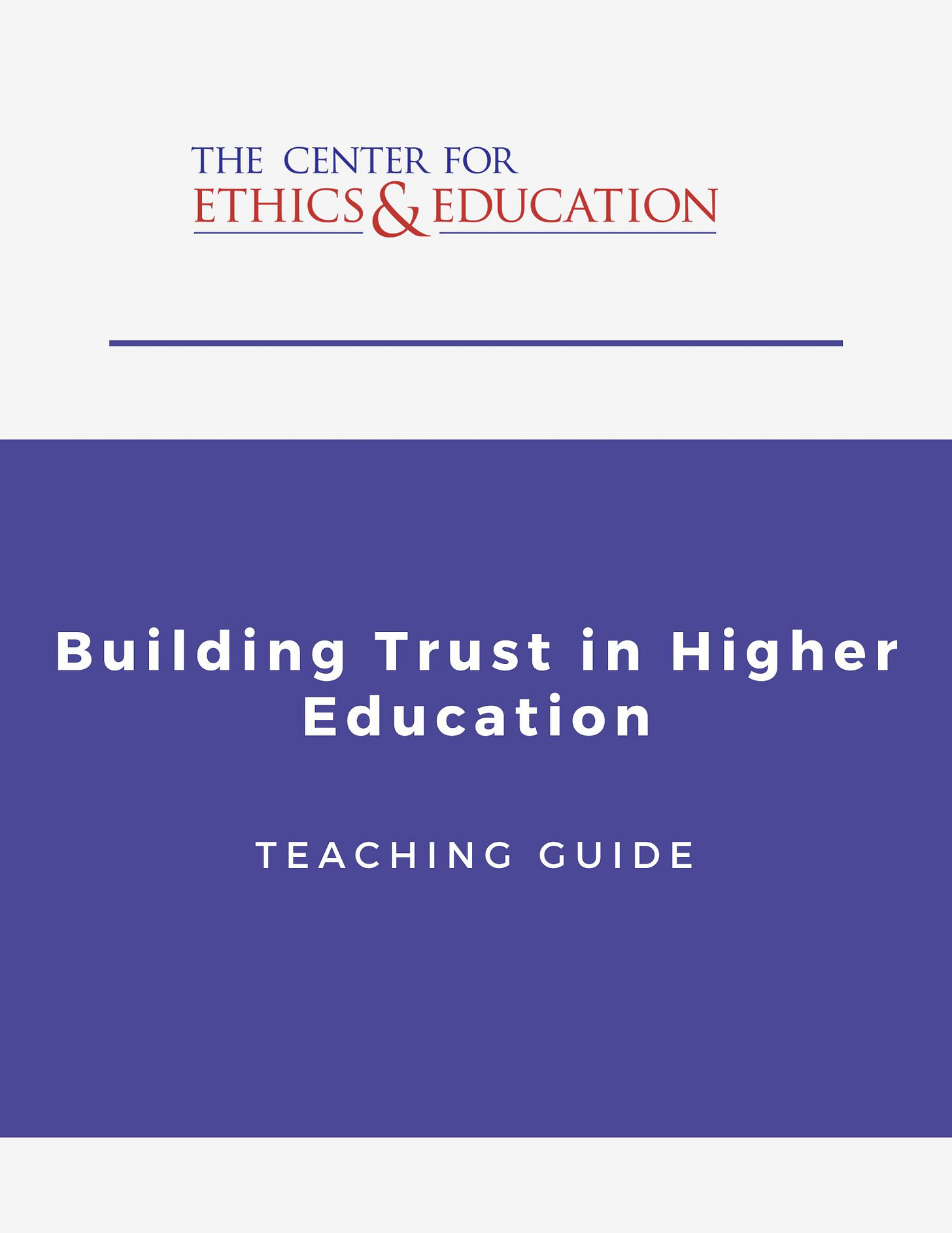The Center for Ethics and Education is committed to encouraging philosophical reflection on contemporary issues in education. We develop our teaching guides for use in undergraduate and graduate philosophy, education, and sociology classes. They are available for free, and offer engaging pedagogical activities to introduce philosophy of education concepts.
We’re so excited to share our newest (and tenth!) teaching guide: Building Trust in Higher Education.
This guide was developed around teaching Tony Laden’s book, Networks of Trust (2024). Written by undergraduate Ari Collins and professor Harry Brighouse, with advising from Tony Laden, the guide contains reading suggestions, in-class activities, and discussion prompts.
Learning Objectives:
Students will...
Gain a conceptual understanding of trust networks and informational ideologies
Describe how trust impacts students and institutions of higher education
Be able to apply trust as a lens to view a wide array of issues in higher education.
Gain skills in problem solving while considering other perspectives and thinking charitably
Understand what institutions of higher education can do to build trust and create open-minded trust networks
Here’s what Tony and Ari have to say about this guide:
Tony Laden:
There are many things that can make a college education difficult: the financial cost, the time and effort involved, the stress. But in addition to these, and happening more or less in the background, is the transformative effect that college can have on how students think and the (re)-shaping of the networks of sources of information they trust.
This conceptual lens—the transformation of trust as a mechanism and by-product of education—doesn’t yield a theory we can apply or a set of proposals or answers, but it can help us see certain features of higher education more clearly (while no doubt obscuring others). I found that once I had named and begun to analyze this dynamic, I started to notice the role trust played throughout the educational process. I began to appreciate one reason why many students as well as their families and communities are anxious about and skeptical or even hostile towards colleges and those who teach in them.
Using this lens helps me notice things I had overlooked before and gives me language and metaphors to talk and think about the mission of higher education generally as well as what I am trying to do in my classes. See if it does the same for you.
Ari Collins:
We need to trust sources of information to live, so how we come to trust what we trust is important. I have always thought that colleges impact students, but I never considered that colleges do so by impacting what sources students trust and how they come to trust them. Developing this teaching guide helped me consider my own trust networks.
I think the most important takeaway from these readings is being able to use trust networks as a framework to understand conflicts. Sometimes conflicts are about facts or data, sometimes they’re about differing values, but sometimes they’re really about trust and sources of information. Trust is a vital part of living with others and this book helped me understand how institutions of higher education can build and shape trust networks.
You can download this guide for free and use any part of it in your classes. We hope it is a valuable teaching resource for you.
Happy summer (and next-semester-syllabus-planning),
CEE
Carrie, Harry, and Tony


